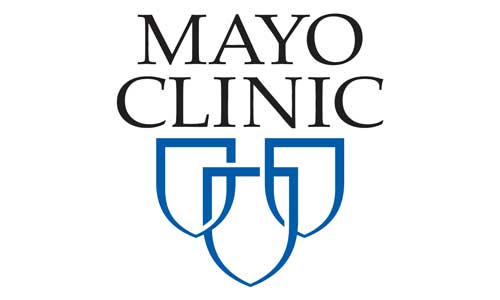Vitamin D is a hormone created by the body when skin is exposed to ultraviolet rays in sunlight. It is found naturally in a small number of foods and can also be taken as a fat-soluble dietary supplement.
Safety and precautions
Vitamin D is generally considered safe at moderate levels.
Risk of cancer
Some higher risks of cancer are seen among people with higher vitamin D intake or 25(OH)D levels above about 40 ng/mL (100 nmol/L).
Also see our blog post about vitamin D levels and cancer risk: Vitamin D: Hit the Sweet Spot to Reduce Cancer Risk ›
Interactions with other therapies among people with cancer
- Vitamin D deficiency reduced effectiveness of the medication rituximab in patients with diffuse large B-cell lymphoma.19Bittenbring JT, Neumann F et al. Vitamin D deficiency impairs rituximab-mediated cellular cytotoxicity and outcome of patients with diffuse large B-cell lymphoma treated with but not without rituximab. Journal of Clinical Oncology. 2014 Oct 10;32(29):3242-8.
- Higher risk of recurrent advanced adenomas and/or 2 or more adenomas after colorectal adenoma surgery among people using aspirin or other nonsteroidal anti-inflammatory drugs (NSAIDs) 4 or more days/week and using 1000 IU/day vitamin D3 compared to those with less frequent NSAID use in a large RCTrandomized controlled trial, a study design in which people are randomly assigned to either an experimental group or a control group to compare the outcomes from different treatments; an RCT is considered a strong design for determining a therapy’s effects20Calderwood AH, Baron JA et al. No evidence for posttreatment effects of vitamin D and calcium supplementation on risk of colorectal adenomas in a randomized trial. Cancer Prevention Research. 2019 May;12(5):295-304.
Side effects or adverse events
Vitamin D is a fat-soluble vitamin with a risk for toxicity and overdose from taking extremely high doses of supplements. Research has shown that 60,000 IU per day leads to vitamin D toxicity.21Zeratsky K. What is vitamin D toxicity? Should I be worried about taking supplements? Mayo Clinic. Viewed July 13, 2022. Acute toxicity could be caused by doses of vitamin D probably in excess of 10,000 IU/day over long periods.22Marcinowska-Suchowierska E, Kupisz-Urbańska M, Łukaszkiewicz J, Płudowski P, Jones G. Vitamin D toxicity-a clinical perspective. Frontiers in Endocrinology (Lausanne). 2018 Sep 20;9:550; De Vincentis S, Russo A et al. How much vitamin D is too much? A case report and review of the literature. Endocrine, Metabolic and Immune Disorders Drug Targets. 2021;21(9):1653-1659. We advise medical supervision if you plan to take high doses of supplements (more than 4000 IUs per day). Overdose is unlikely when getting vitamin D from food sources or sun exposure.
Although once rare, vitamin D toxicity has increasingly been reported in people with serum concentrations ranging between 150 and 1220 ng/mL and serum calcium concentrations between 11.1 and 23.1 mg/dL. Such high levels are typically seen among people taking high doses of vitamin D supplements, with underlying causes including manufacturing errors and/or overdosing by patients or prescribers.23Galior K, Grebe S, Singh R. Development of vitamin D toxicity from overcorrection of vitamin d deficiency: a review of case reports. Nutrients. 2018 Jul 24;10(8):953; Lim K, Thadhani R. Vitamin D toxicity. Brazilian Journal of Nephrology. 2020 Apr 3;42(2):238-244.
Adverse reactions and drug interactions are noted with high 25(OH)D levels, especially at or above 40 ng/mL (100 nmol/L).
- Vomiting or changes in bowel movements
- Drowsiness, and in extreme cases, depression, delusions and even coma
- Calcinosis (the deposit of calcium salts in tissues such as the kidneys, heart, or lungs) and high blood levels of calcium (hypercalcemia);24National Cancer Institute. Vitamin D and Cancer Prevention. October 21, 2013. Viewed November 2, 2021. in severe cases, this can lead to the formation of kidney stones or calcifications in organs
- Acute renal failure and vitamin A toxicity25Granado-Lorencio F, Rubio E et al. Hypercalcemia, hypervitaminosis A and 3-epi-25-OH-D3 levels after consumption of an “over the counter” vitamin D remedy. A case report. Food and Chemical Toxicology. 2012 Jun;50(6):2106-8.
No adverse effects on reproductive hormone levels among postmenopausal women with stage 1–3a breast cancer treated with 4000 IU compared 600 IU
- Comparable effects on reproductive hormone levels among postmenopausal women with stage 1–3a breast cancer treated with 4000 IU or 600 IU vitamin D3 daily for 6 months in a mid-sized uncontrolled trial; the researchers concluded that the higher dose did not adversely affect reproductive hormone levels26Shapiro AC, Adlis SA et al. Randomized, blinded trial of vitamin D3 for treating aromatase inhibitor-associated musculoskeletal symptoms (AIMSS). Breast Cancer Research and Treatment. 2016 Feb;155(3):501-12.
Vitamin D combined with other treatments
Do not use (contraindications)
Individuals with disorders of calcium metabolism, gastrointestinal disease, kidney disease, heart disease, or liver disease should consult a physician before using vitamin D supplements.
Helpful link
References

